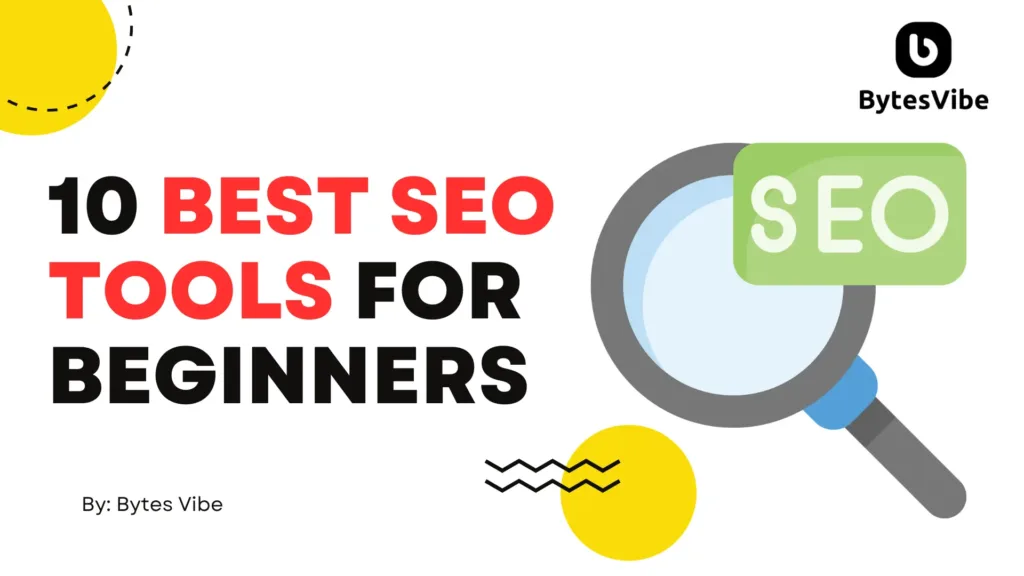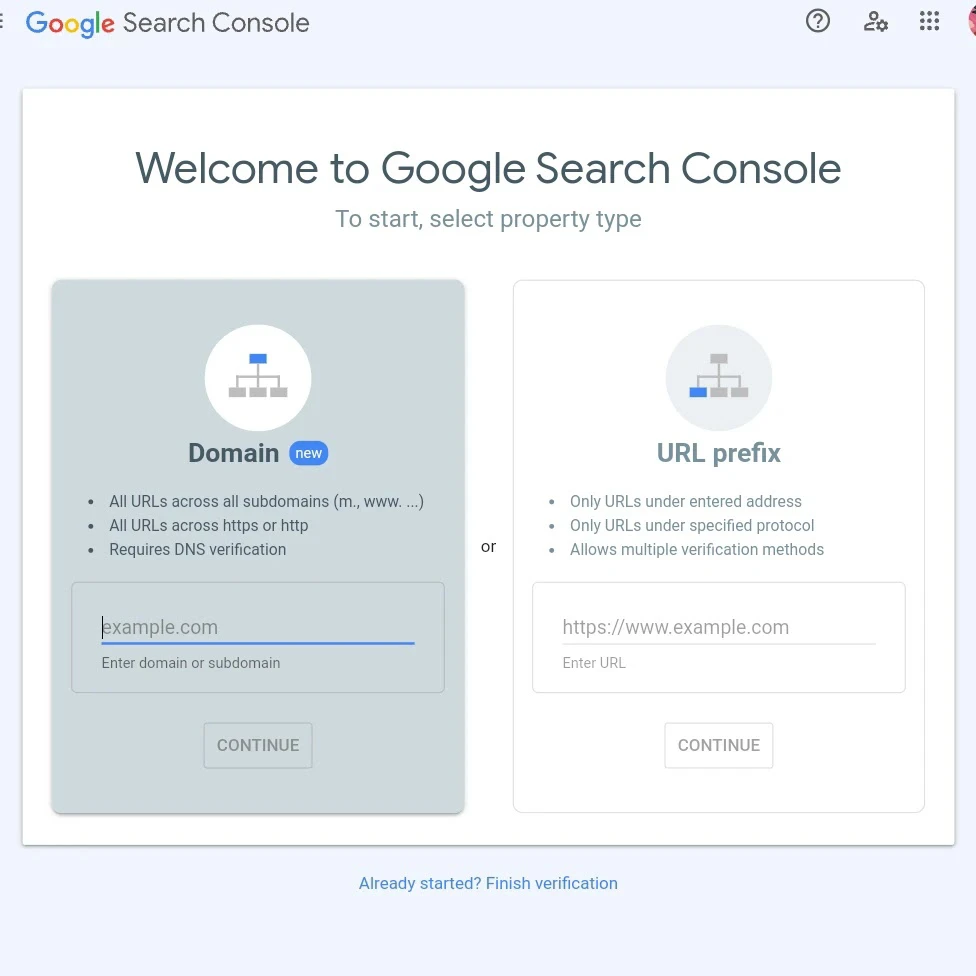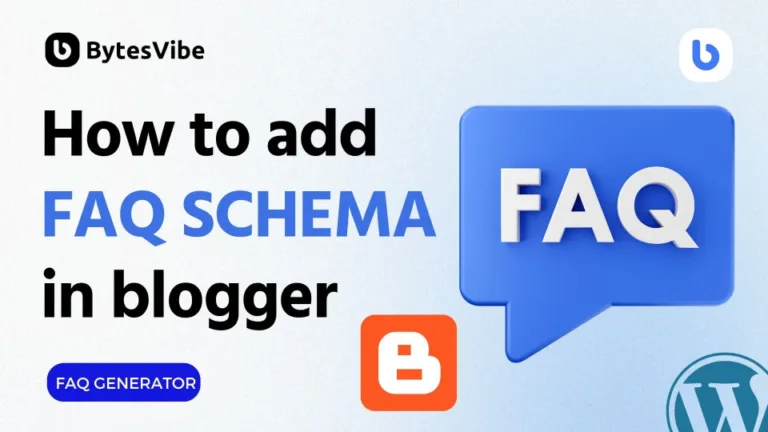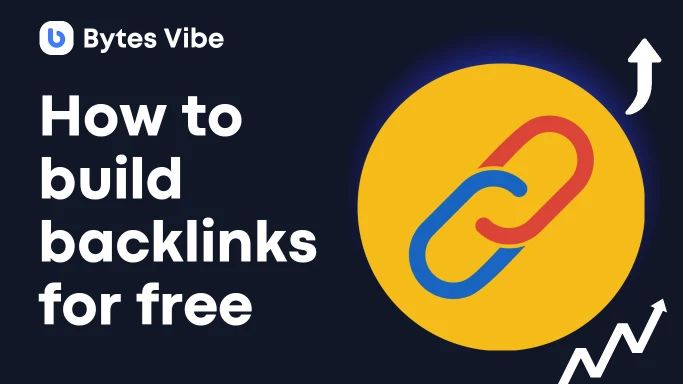SEO tools are like power tools for your website. With the right ones, you can build a site that not only looks good but also ranks high in search results. Over the years, I’ve tested countless tools, and these 10 are the best seo tools that have consistently delivered great results. If you started a new blog than you need these seo tools. So let’s see the best SEO tools for beginners.

The Importance of Choosing the Right SEO Tools
Before Bytes Vibe dive into the best seo tools free, it’s really important to understand that not all SEO tools are created equal. The best seo tool depends on your specific needs, budget, and level of expertise. Some free seo tools offer a wide range of features, while others specialize in a particular area.
There’s also a difference between free and paid tools. While free options can be a great starting point, paid tools often provide more in-depth data and features. The key is to find the right balance that suits your business goals.
The Best SEO tools for beginners:
Now, let’s explore the ten essential SEO tools that should be part of small business:
1. Google Search Console
Google Search Console is the best seo tools for beginners. It’s a free tool provided by Google that helps you monitor your site’s performance in search results. By providing insights into your website’s visibility, it helps you understand how Google indexes and crawls your site.

How to Use It:
- Monitor Indexing Status: Make sure your pages are indexed and troubleshoot issues.
- Identify Search Queries: See what keywords are driving traffic.
- Track Click-Through Rate (CTR): Optimize meta descriptions and titles based on CTR data.
Pro Tip: Regularly check for crawl errors and fix them to ensure site remains accessible to search engines.
2. Ahrefs
Ahrefs is best seo tools for competitive analysis and backlink research. It helps you discover your competitors’ backlinks, identify opportunities for link building, and analyze keyword rankings.
How to Use It:
- Site Explorer: Analyze your backlink profile and explore competitors’ backlinks.
- Content Explorer: Discover top-performing content in your niche.
- Rank Tracker: Monitor your keyword rankings over time.
Pro Tip: Regularly check site authority to see any harmful or spammy links that could negatively impact your rankings.
3. SEMrush
Similar to Ahrefs, SEMrush is a versatile tool for keyword research, competitor analysis, and backlink auditing. It also offers features for social media marketing and PPC advertising. SEMrush is known for its user-friendly interface and extensive data.
How to Use It:
- Keyword Research: Identify profitable keywords with search volume and difficulty metrics.
- Competitor Analysis: Discover what keywords your competitors are ranking for.
- Backlink Analysis: Monitor your backlink profile and track new or lost links.
Pro Tip: Use the “Keyword Gap” tool to compare your domain against competitors and find untapped keyword opportunities.
4. Google Analytics
Another free Google tool, Analytics tracks website traffic and user behavior. It helps you understand your audience, measure conversions, and identify top-performing pages. By combining it with Search Console, you can get a well view of your website’s performance.
How to Use It:
- Track Traffic Sources: Understand where your visitors are coming from.
- Monitor User Behavior: Analyze how users interact with your site.
- Conversion Tracking: Set up goals to measure your site’s effectiveness.
Pro Tip: Create custom dashboards to monitor the most important metrics for your business at a glance.
5. Moz Pro
Moz Pro is a well-rounded SEO toolset that includes keyword research, site audits, link building, and rank tracking. Its focus on on-page SEO optimization, with features like the Keyword Difficulty score, makes it a popular choice for content marketers.
How to Use It:
- Keyword Explorer: Find keywords and analyze their difficulty and potential.
- Link Explorer: Research your backlink profile and discover new linking opportunities.
- On-Page Grader: Optimize your pages for specific keywords.
Pro Tip: Use the “Page Optimization” feature to get actionable recommendations for improving your on-page SEO.
6. Yoast SEO (for WordPress)
While primarily a WordPress plugin, Yoast SEO is best seo tools for wordpress. It helps in optimize titles, meta descriptions, headings, and image alt text. Yoast also provides readability and SEO scores to help with content creation.
How to Use It:
- Content Optimization: Get real-time feedback on keyword usage, readability, and meta tags.
- Technical SEO: Automatically generate XML sitemaps and manage your robots.txt file.
- Schema Integration: Add structured data to your content without coding.
Pro Tip: Pay close attention to Yoast’s readability analysis to ensure your content is not only optimized for search engines but also user-friendly.
7. Screaming Frog
This Screaming frog SEO crawler is essential for technical SEO audits. It scans your website to identify broken links, duplicate content, and other technical issues. Screaming Frog can also be used for site architecture analysis and XML sitemap generation. It is one of the best seo tools for agencies
How to Use It:
- Site Audits: Crawl site to find issues that could be harming your SEO.
- XML Sitemap Generation: Create sitemaps and submit them to Google Search Console.
- Analyze Page Speed: Identify pages that are loading slowly and need optimization.
Pro Tip: Use the “Inlinks” feature to see how your internal linking structure supports your SEO strategy.
8. Ubersuggest
Ubersuggest by Neil Patel is a user-friendly tool that offers keyword suggestions, content ideas, and competitive analysis. It’s especially useful for beginners due to its simplicity and effectiveness. It is one of the best seo tools for beginner marketers.
How to Use It:
- Keyword Ideas: Find new keywords with search volume, competition, and trend data.
- Content Ideas: Discover what topics are resonating in your industry.
- SEO Audit: Get an overview of your site’s SEO health.
Pro Tip: Leverage the “Top SEO Pages” report to understand what content is driving traffic to your competitors.
9. Majestic
Majestic specializes in backlink analysis and is known for its proprietary metrics like Trust Flow and Citation Flow, which help you evaluate the quality and influence of backlinks.
How to Use It:
- Backlink Analysis: Explore the strength and trustworthiness of your backlinks.
- Site Explorer: Investigate the backlink profile of any website.
- Competitor Research: Compare your backlink profile with competitors.
Pro Tip: Focus on increasing your Trust Flow by earning links from high-authority sites in your niche.
10. Surfer SEO
Surfer SEO is a powerful content optimization tool that uses data-driven analysis to help you rank higher. It provides real-time guidelines on how to optimize your content for specific keywords.
How to Use It:
- Content Editor: Optimize your content as you write with real-time suggestions.
- SERP Analyzer: Analyze the top-ranking pages for your target keywords.
- Content Planner: Plan your content strategy based on current SERP data.
Pro Tip: Regularly update your content using Surfer SEO’s guidelines to maintain or improve your rankings over time.
These 10 were the Best SEO tools for beginners. Selecting the right SEO tools is crucial for website’s success. While free tools like Google Search Console and Ubersuggest provide excellent starting points, investing in paid tools like SEMrush or Ahrefs can significantly boost SEO efforts. Remember, the best seo tools are those that align with your specific needs and budget.







